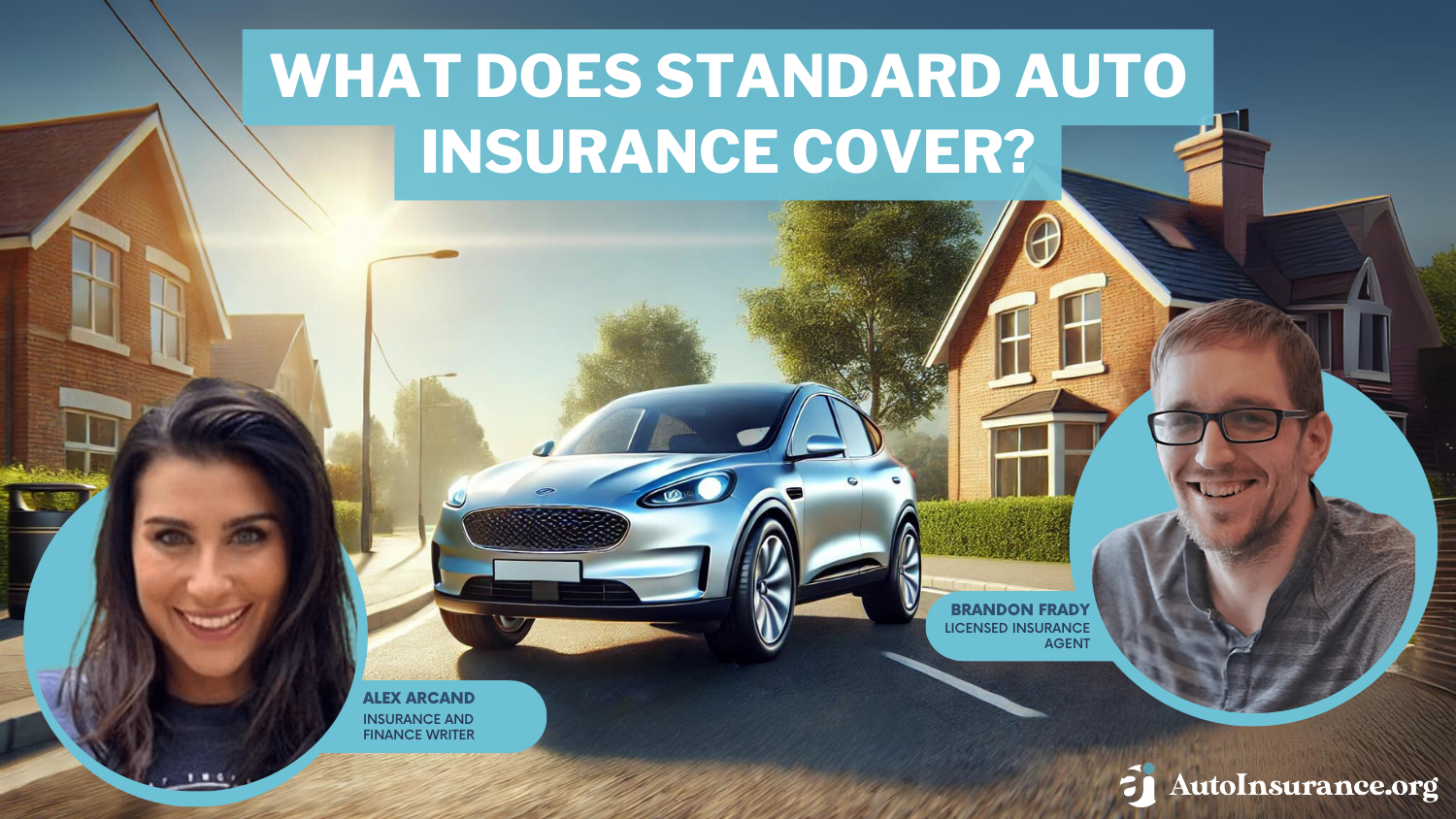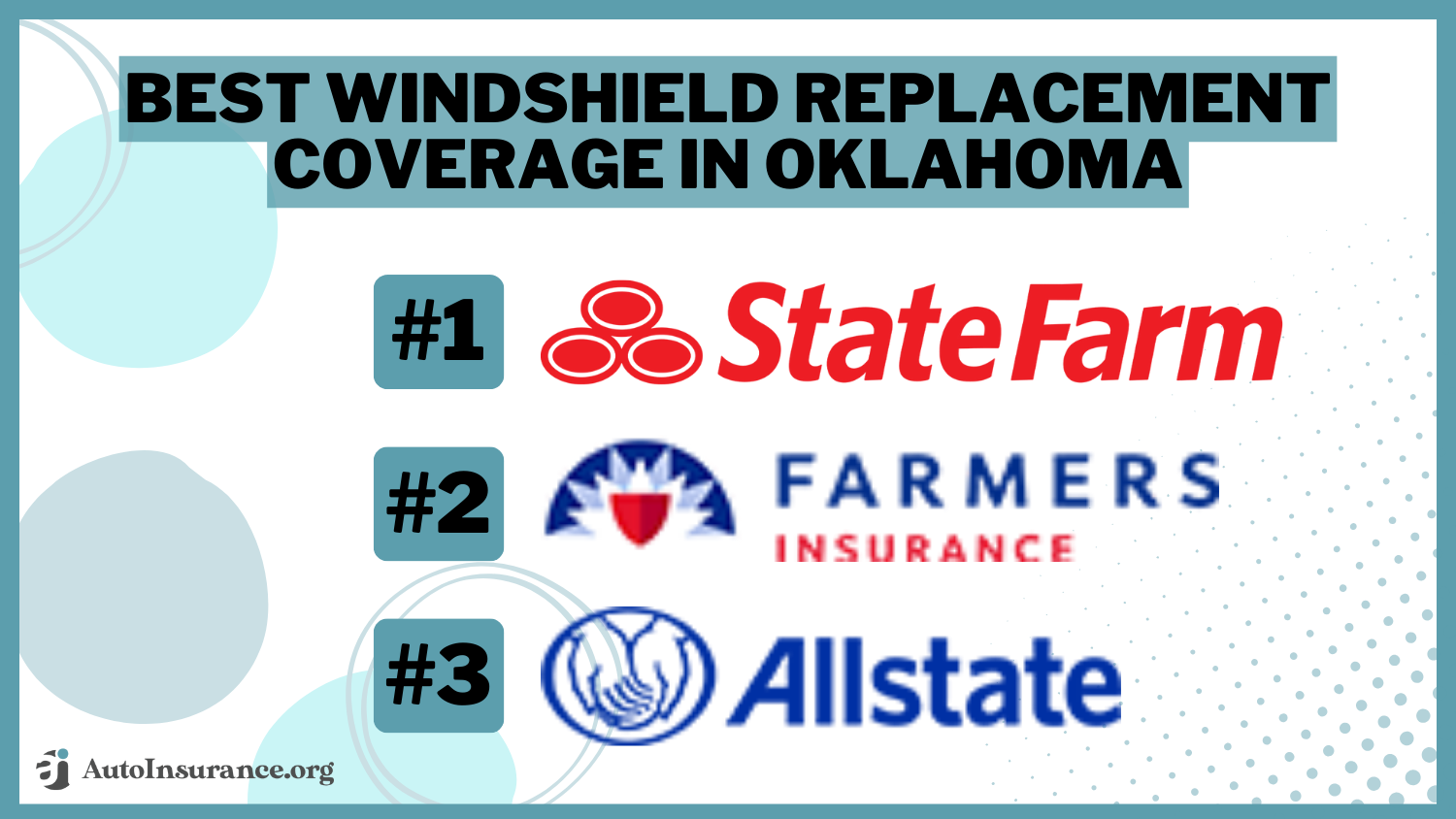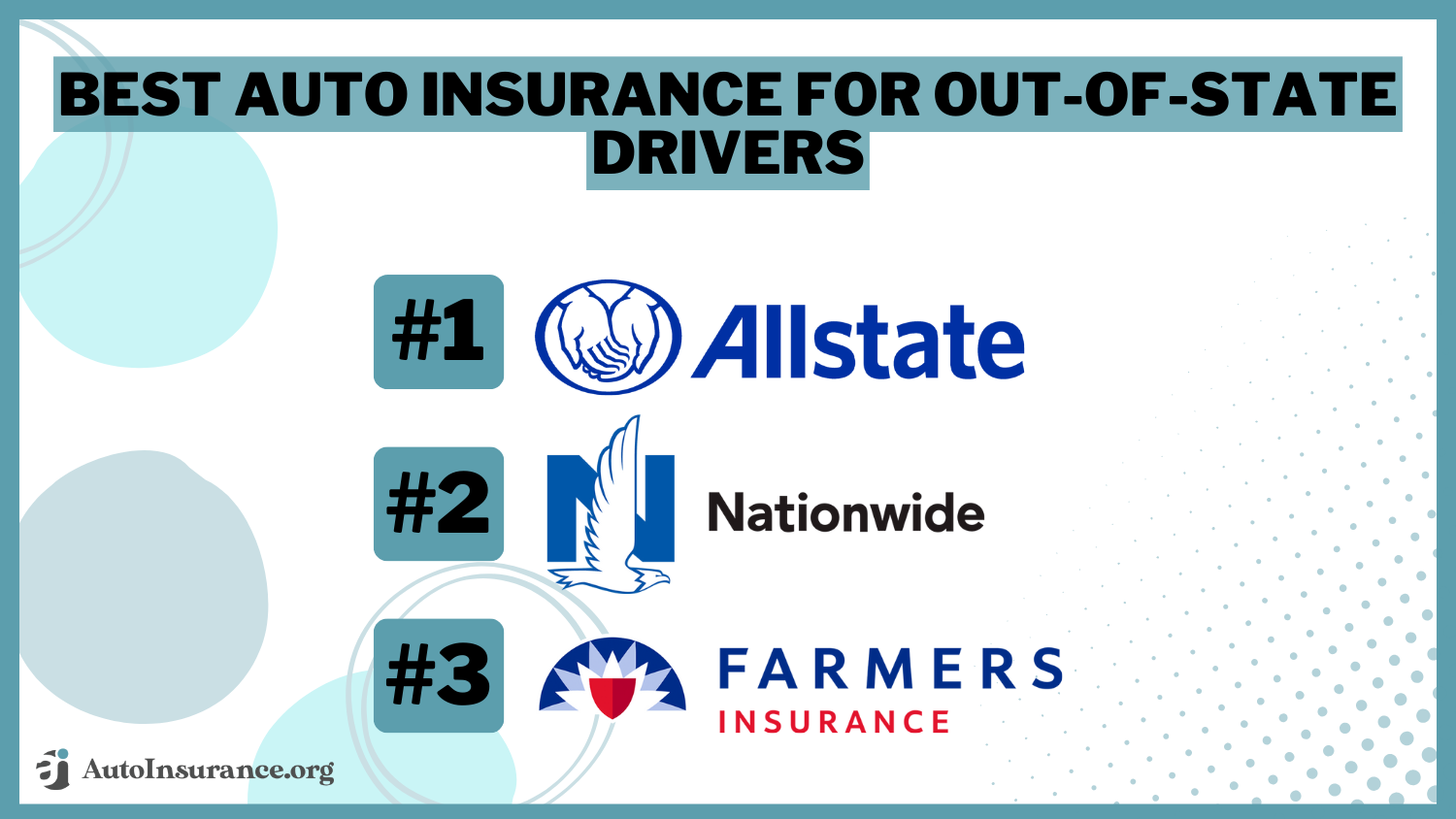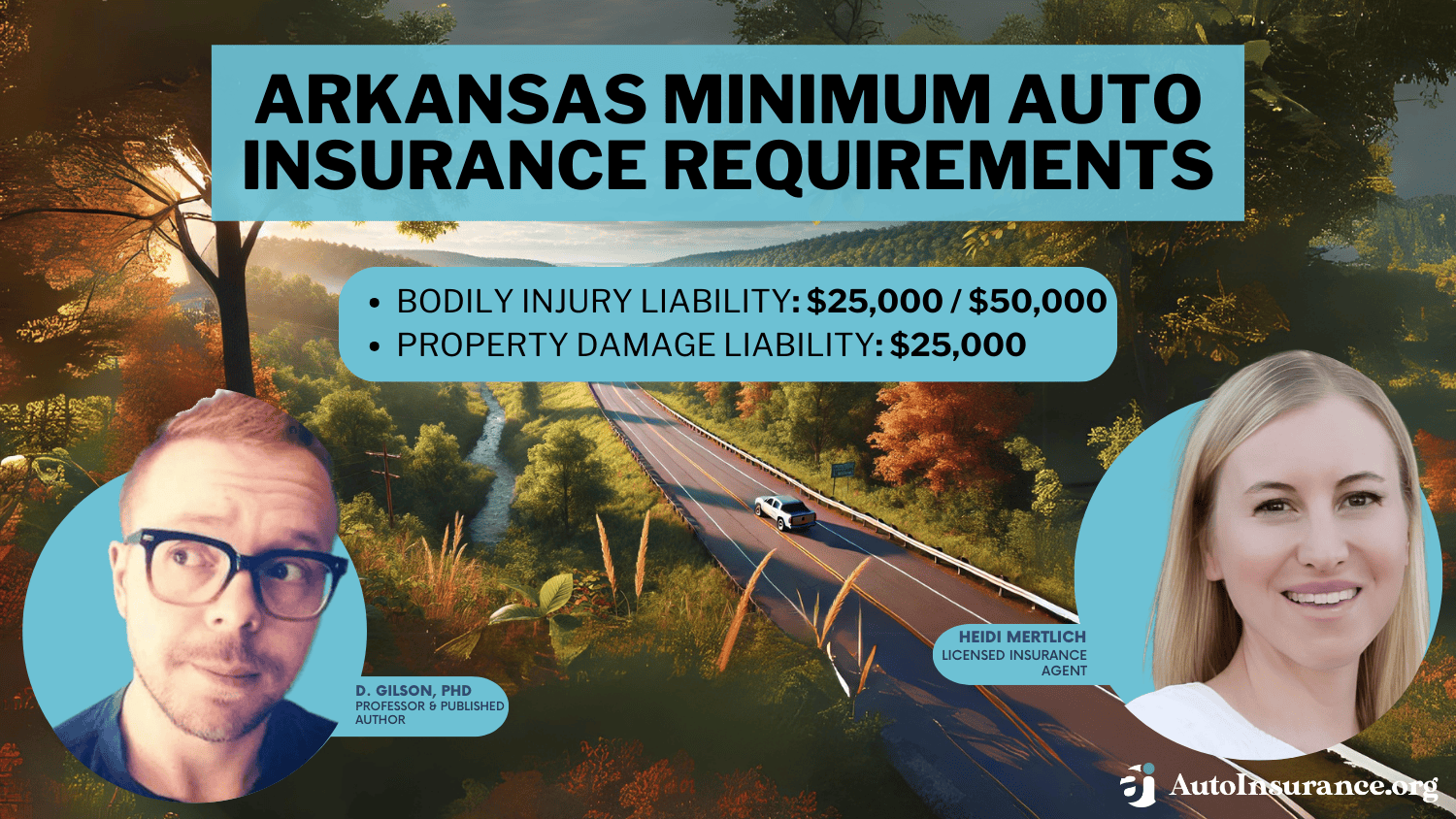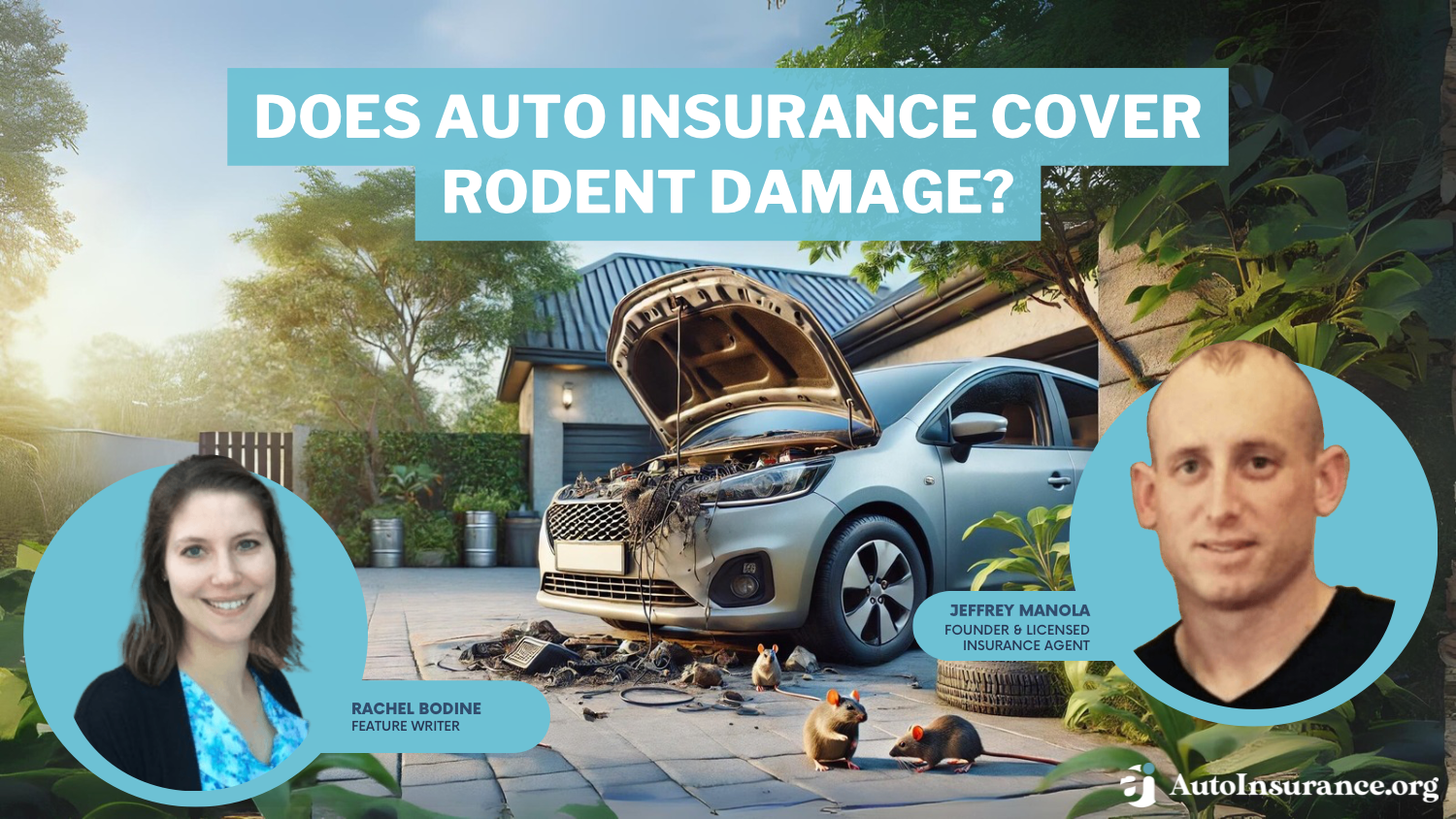Auto Insurance Laws (2026)
Forty-eight U.S. states have auto insurance laws requiring drivers to have minimum liability coverage, Laws vary by state, but on average, drivers pay $44 a month for minimum insurance. We detail liability and other coverages that can be required, as well as what happens if you are driving around without insurance.
Read more Secured with SHA-256 Encryption




Table of Contents
Table of Contents


Licensed Insurance Producer
Brandon Frady has been a licensed insurance agent and insurance office manager since 2018. He has experience in ventures from retail to finance, working positions from cashier to management, but it wasn’t until Brandon started working in the insurance industry that he truly felt at home in his career. In his day-to-day interactions, he aims to live out his business philosophy in how he treats hi...
Brandon Frady


Insurance Claims Support & Sr. Adjuster
Kalyn grew up in an insurance family with a grandfather, aunt, and uncle leading successful careers as insurance agents. She soon found she has similar interests and followed in their footsteps. After spending about ten years working in the insurance industry as both an appraiser dispatcher and a senior property claims adjuster, she decided to combine her years of insurance experience with another...
Kalyn Johnson
Updated December 2024
Everyone in the United States who owns any type of motor vehicle licensed for street use in almost every state must, by law, carry some form of auto insurance.
It has become common knowledge that car insurance is required by law, but what other factors affect auto insurance rates that owners and drivers need to know about auto insurance and state laws?
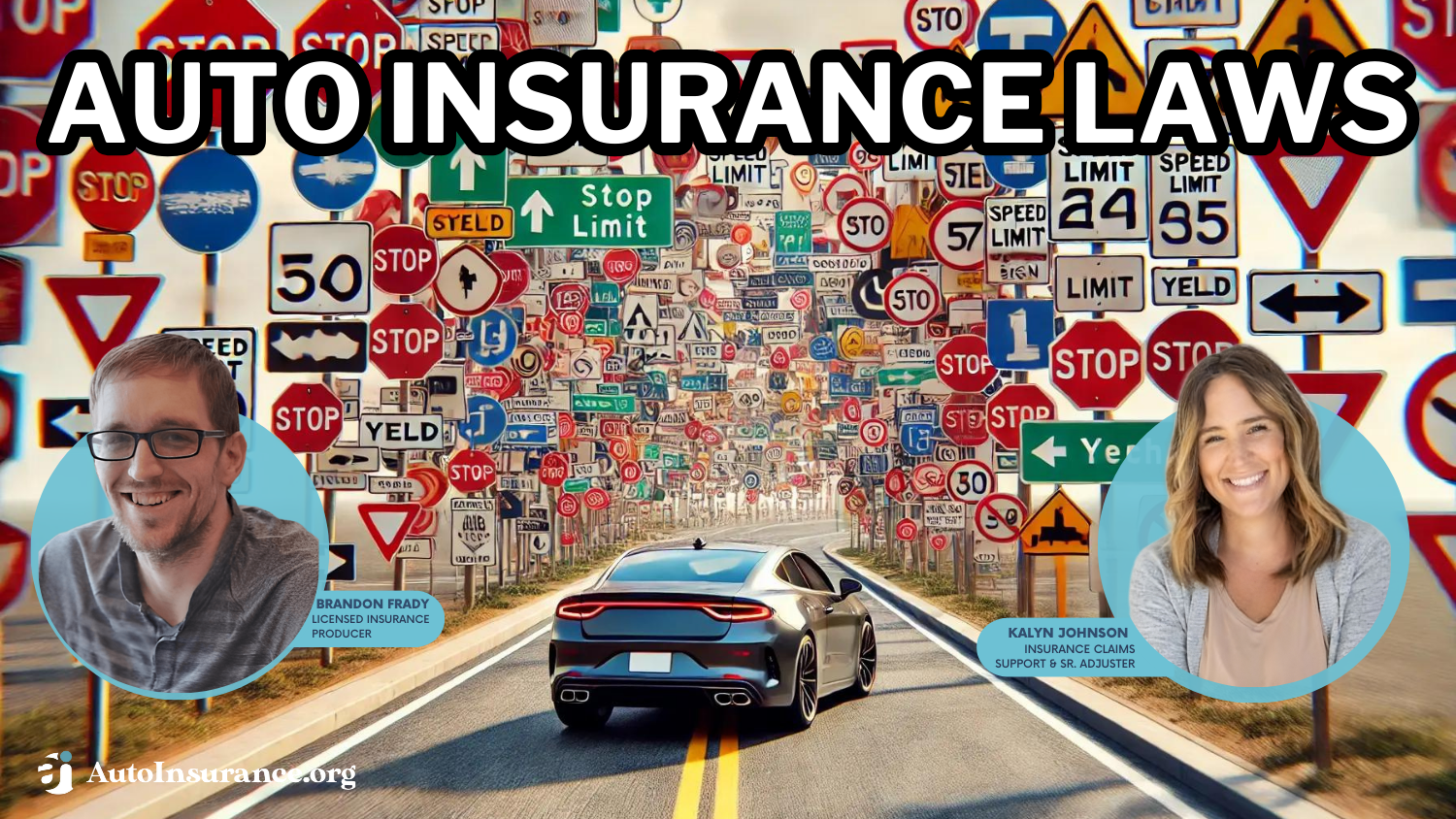
Cars and trucks are carried under auto policies, while motorcycles require a separate, specialized policy. Regardless of whether you are driving a car, truck, or motorcycle, there are very similar auto insurance laws.
Read through this list of automobile insurance laws, and then to find the very best auto insurance rates be sure to enter your zip code at the top of this page for free auto insurance quotes!
- Drivers in almost every state must, by law carry some form of auto insurance
- Minimum liability coverage is established by the state while full coverage is a requirement from your loan or leasing company
- Most states follow the standard at-fault/not-at-fault accident system
Components of an Auto Insurance Policy
State Insurance Commissioners require by state auto insurance law that each and every insurance policy is comprised of some basic options.
Some insurance companies will offer extras such as roadside assistance coverage or pet injury coverage, but there are common elements available from all companies that can include some or all of the following:
Liability Insurance
Liability auto insurance pays for any property damage or bodily injury that a driver may cause to another party. This covers damage to other cars and their occupants as well as roadside street signs or pedestrians. It also covers passengers in the driver’s car, but it does not cover the driver or the driver’s car.
Collision Insurance
Collision auto insurance covers the driver’s car in the event he or she causes an accident and damages their own car. Collision insurance is normally associated with a deductible that is paid out of pocket before the insurance company pays the remainder of the tab.
Comprehensive Insurance
Comprehensive auto insurance covers the car for any damage that is not a collision. Damage such as hail, theft, or vandalism would be covered under comprehensive. Comprehensive is also typically sold with a deductible.
Uninsured/Underinsured Motorist Insurance (UM/UIM)
Uninsured motorist coverage is similar to liability coverage; however, it covers the policyholder rather than other parties. If a policyholder is involved in an accident caused by a driver who does not have any insurance or does not have enough insurance to cover the damages, then uninsured/underinsured motorist coverage would activate to cover the policyholder’s medical and property damage expenses.
In the event your insurance company pays UM/UIM to their insured on behalf of the driver with no insurance, it will be up to the insurance company’s discretion if they will sue the other driver for the damages they were liable for but uninsured or underinsured to pay.
Personal Injury Protection Insurance (PIP)
Personal injury protection auto insurance pays the driver and any passengers up to a specified limit for medical bills and death expenses as well as loss of income resulting from the injuries, among other things. This coverage pays out regardless of who is at fault for the accident.
Rental Car Reimbursement Coverage
Rental car reimbursement coverage would pay for the use of a rental car when the insured vehicle is unusable due to a comprehensive or collision claim. If another driver hits the policyholder, the other party’s insurance would pay the cost of the rental car.
Gap Coverage
If your vehicle is leased or financed and you owe more than your car is worth, gap insurance will pay over and above the value of the vehicle to cover the amount you owe. Some gap policies will pay any amount you owe. Some are capped at a certain amount based on the car’s value.
Free Insurance Comparison
Compare Quotes From Top Companies and Save
Secured with SHA-256 Encryption
Specialized Motorcycle Insurance Laws
In addition to the general coverages listed above, motorcycle policies also have one major difference. In most parts of the country, motorcycles cannot be driven all year long, so policies have a lay-up option.
This option allows the driver to be covered and pay for only the part of the year that the motorcycle is usable. For example, your policy may only offer coverage from May 1 to September 30.
Choosing the lay-up option will lower your premium; however, even if there’s a beautiful day in April, you are not insured to drive the bike.
This option allows the driver to be covered and pay for only the part of the year that the motorcycle is usable.
Minimum Auto Insurance Requirements
There are two types of insurance requirements: minimum liability coverage established by the state and if your vehicle is leased or financed, the full coverage auto insurance requirements of your loan or leasing company.
Auto Insurance Laws by State
Every state has a minimum liability coverage requirement. Your state’s laws will dictate the liability limits you must carry on all vehicles you own.
For example, New York’s minimum liability requirement is 25/50/10. This means that every New Yorker must insure their car with liability that covers up to $25,000 in bodily injury liability coverage per person at a total of $50,000 per accident and up to $10,000 in property damage liability.
Here’s how it works: There are three people in a car worth $15,000, and you hit that car while carrying state minimum liability insurance. You cause $10,000 in medical bills per person, and their vehicle is totaled.
Your bodily injury liability would be $30,000, and you are fully covered. You caused $15,000 in property damage but only have $10,000 in coverage.
If the driver of the car you hit had underinsured motorist coverage, that would pay the remaining $5,000; however, since you are still the liable party in the accident, their insurance company may choose to sue you for the additional $5,000 they paid on your behalf.
Bank/Loan Minimums
Since they own the car, they will require you to carry collision and comprehensive coverage to ensure that the car they own is covered by insurance, and they would be reimbursed should the car be totaled.
Proof of Insurance
Since you are required to carry coverage on your car, you may be asked to prove it at any time. Every insurance company will provide you with an insurance card to keep in your wallet or with the car.
It will reflect the name of the insurance company, the car that is covered, as well as the policy’s effective dates.
If you are pulled over for a traffic violation or registering your car, you will probably be asked to show your insurance ID card.
If you are found guilty of being uninsured, you could face a fine or driver’s license suspension.
Failing to produce proof of insurance upon request can result in a citation or even arrest.
Read more: How to Get Instant Auto Insurance Proof
SR-22 Filing
SR-22 auto insurance is assigned by the court system to people who have had serious and often repeated auto-related violations in the past, such as drunk driving or driving without insurance.
The state, in turn, gets immediate notification of a person’s insurance status and can issue an arrest warrant or fine if someone is in violation of their filing.
About 14% of U.S. drivers don’t have auto insurance. Depending on the state they live in, they’re risking fines of $50-$2,000, license suspension, vehicle impoundment, points on their driving record, and in severe instances, jail time.Daniel Walker Licensed Insurance Agent
If a driver is required to carry an SR-22, they must notify their insurance company immediately.
With this filing placed on their policy, the insurance company will be in contact with the state every time the policy is renewed or canceled.
Free Insurance Comparison
Compare Quotes From Top Companies and Save
Secured with SHA-256 Encryption
Tort States/No-Fault States
Most states follow the standard at-fault/not-at-fault accident system. When an accident happens, one driver will be deemed to have caused the accident (at fault), and one driver will be deemed not at fault.
The at-fault driver would cover the accident through their liability coverage, paying the other driver’s expenses, and with collision coverage and personal injury protection, they would pay their own expenses
In order to lower the costs of attorneys and lawsuits, some states have adopted tort systems or no-fault systems.
In a tort state, such as Pennsylvania, policyholders can opt to lower their insurance premiums by choosing “limited tort.” Carrying full tort, a policyholder can file a lawsuit for personal injury resulting from a car accident for any reason.
By choosing limited tort, a policyholder is limiting their ability to sue for any additional settlement, with the exception of very serious circumstances.
Carrying full tort, a policyholder can file a lawsuit for personal injury resulting from a car accident for any reason.
In a no-fault insurance state, each party carries insurance to cover their own expenses should an accident occur.
Aside from reduced litigation costs, this type of policy also allows for quick payment of settlements because there is no haggling over who pays.
Car Seat Laws
Car seat laws are regulations that govern the use of child safety seats and booster seats in vehicles. These laws typically specify the age, weight, and height of children who must use these seats, as well as the types of seats that are appropriate for different stages of a child’s development.
Car seat laws may also require that children be seated in the back seat of a vehicle and that the seats be installed and used correctly according to the manufacturer’s instructions. The purpose of these laws is to help protect children in the event of a car accident by ensuring that they are properly restrained and positioned in the vehicle.
Car seat laws generally do not have a direct impact on your car insurance premiums. However, if you are found to be in violation of car seat laws and are issued a citation, this could result in points on your driving record or fines, which could in turn lead to higher insurance rates.
Additionally, if you are involved in an accident and it is determined that you were not in compliance with car seat laws, this could impact your liability and potentially result in higher insurance premiums. It is important to always follow car seat laws and ensure that your children are properly restrained in your vehicle to protect their safety and potentially avoid any legal or insurance-related consequences.
Just as auto insurance requirements vary by state, so do car seat laws, so be mindful of that especially when moving to a new state. California, New Jersey, and Oklahoma have the most stringent car seat laws.Laura Gunn Insurance and Finance Writer
Select your state from the list below in order to learn more about child car seat requirements in your state.
Follow Driving Laws
Traffic violations can have a significant impact on your auto insurance coverage and rates. Insurance companies view drivers with a history of traffic violations as higher risk and may raise their rates or even cancel their coverage. This is because these violations indicate a higher likelihood of accidents, which can lead to insurance claims and increased costs for the insurer.
Depending on the severity and frequency of the violations, you may also be considered a high-risk driver, which can make it more difficult to find affordable insurance coverage. It’s important to follow traffic laws and drive safely to avoid violations and maintain your insurance coverage at an affordable rate.
Here is a list of common driving infractions that can impact your auto insurance rates:
- Speeding tickets
- Running a red light or stop sign
- Reckless driving
- DUI/DWI convictions
- At-fault accidents
- Failure to yield
- Driving without a license or insurance
- Hit-and-run accidents
- Street racing
- Driving with a suspended or revoked license
Read more: Does a criminal record affect auto insurance rates?
Each of these infractions can result in points on your driving record and may cause your insurance rates to increase. Some violations, such as DUI/DWI convictions or hit-and-run accidents, may even result in your insurance company canceling your coverage altogether. It’s important to drive safely and follow traffic laws to avoid these infractions and maintain affordable auto insurance coverage.
Free Insurance Comparison
Compare Quotes From Top Companies and Save
Secured with SHA-256 Encryption
Auto Insurance Rate Factors
What do insurance companies look for in drivers? Auto insurance rates are factored by basic information, including:
- The drivers on the policy, their genders, ages, marital statuses, and driving records
- The value and safety records of the vehicles on the policy
- The policy owner’s credit score
- The usage and distance of the vehicles driven
State laws and coverages vary widely. For specific information about minimum auto insurance requirements by state, visit your state’s Department of Motor Vehicles website.
Understanding Auto Insurance Laws and Regulations
In the context of understanding the intricacies of auto insurance, several important phrases and terms arise frequently. For instance, California auto insurance laws and regulations as well as California minimum insurance requirements are critical for drivers in California to comprehend. Additionally, for those looking into specific insurance companies, knowing about direct auto insurance upcoming trends is beneficial. A common question is do states dictate a driver’s minimum required amount of insurance, laid up motorcycle insurance, and indeed, states dictate a drivers minimum required amount of insurance in various ways.
Motorcycle enthusiasts should be aware of laid up motorcycle insurance, a specialized form of coverage. Understanding minimum car insurance requirements by state is crucial for compliance and financial protection. Recent changes have highlighted new California car insurance law which reflect the evolving legislative landscape. Similarly, new car insurance law are terms that signify broader changes affecting all drivers.
In Oregon, knowing the Oregon car insurance law and Oregon minimum car insurance requirements is essential for compliance. Oregon car insurance laws mandate minimum liability coverage for bodily injury and property damage, as well as uninsured motorist coverage and personal injury protection, to ensure adequate financial protection for drivers and accident victims.
Similarly, Pennsylvania auto insurance laws and regulations dictate the minimum coverage for drivers in Pennsylvania. On a broader scale, U.S. car insurance law encompasses federal and state regulations.
Virginia has introduced a new car insurance law, impacting local drivers. A unique situation arises in Ohio, prompting the question, what is the exception to the law requiring auto liability insurance in Ohio? This points to specific legal nuances in the state. Generally, knowing what type of auto insurance is required by law in most states and which type of auto insurance is required by law in most states helps drivers understand their obligations.
If you want to compare cheap auto insurance rates from competing companies to save money then just enter your zip code right now in our free comparison tool below!
Other Frequently Asked Questions about Car Insurance and Laws
Navigating the world of car insurance can be complex, with various laws and regulations differing by state. This FAQ section addresses some of the most common questions about car insurance requirements and policies in the United States, providing clear and concise answers to help you understand your obligations and options.
- What states is it illegal to not have car insurance? In almost every state, it is illegal to drive without car insurance. States that require drivers to have car insurance ensure that drivers can cover damages in case of an accident. New Hampshire and Virginia are exceptions; however, these states have strict financial responsibility laws that drivers must follow if they opt out of purchasing car insurance.
- Is car insurance mandatory by law in most states? Yes, car insurance is mandatory by law in most states. Nearly all states require drivers to carry a minimum level of liability insurance to cover damages or injuries they may cause in an accident.
- What is the new law in Virginia about car insurance? The new law in Virginia regarding car insurance requires uninsured drivers to pay a fee if they choose not to carry insurance. This fee does not provide any insurance coverage but allows them to drive legally without insurance.
- Is car insurance a federal law? No, car insurance is not mandated by federal law. Car insurance requirements are determined by state laws, which means each state sets its own minimum coverage requirements and regulations.
- What is the 15/30/5 rule? The 15/30/5 rule refers to the minimum liability insurance coverage limits required in some states: $15,000 for injury or death of one person, $30,000 for injury or death of more than one person, and $5,000 for property damage.
- Can you go to jail for driving without insurance in Texas? Yes, in Texas, driving without insurance can lead to serious penalties, including fines, vehicle impoundment, and even jail time, especially if the driver is involved in an accident without insurance.
- Is car insurance a legal requirement in the USA? Yes, car insurance is a legal requirement in the USA, with each state setting its own minimum insurance requirements. Failure to comply with these laws can result in fines, license suspension, and other penalties.
- Is car insurance constitutional? Yes, car insurance requirements are constitutional. The mandate for drivers to carry insurance is a legal regulation set by individual states to ensure that drivers can cover potential damages or injuries they may cause.
- What is the purpose of an umbrella policy? An umbrella policy provides additional liability coverage beyond the limits of a standard auto or homeowners insurance policy. It offers extra protection against major claims and lawsuits, ensuring greater financial security.
- Do insurance companies go after uninsured drivers in Virginia? Yes, in Virginia, if an insured driver is involved in an accident with an uninsured driver, the insurance company may pursue the uninsured driver for damages through subrogation.
- Does Virginia allow drivers to drive uninsured? Yes, Virginia allows drivers to drive uninsured if they pay an Uninsured Motor Vehicle (UMV) fee. This fee does not provide insurance coverage but permits legal driving without insurance.
- Is Virginia a no-fault state for auto? No, Virginia is not a no-fault state. It follows a traditional fault-based system where the driver who is found to be at fault for an accident is responsible for paying for damages.
- What are the three limits of insurance policies? The three limits of insurance policies typically refer to bodily injury per person, bodily injury per accident, and property damage. These limits define the maximum amount the insurance company will pay in each category.
- What are the three types of car insurance? The three main types of car insurance are liability insurance, collision insurance, and comprehensive insurance. Liability insurance covers damages to others; collision insurance covers damages to your own vehicle in an accident; and comprehensive insurance covers damages to your vehicle from non-collision events such as theft, fire, or natural disasters.
- Can you drive someone else’s car in America? Yes, you can drive someone else’s car in America as long as you have the owner’s permission and are covered under their insurance policy or have your own insurance that extends coverage to other vehicles you drive.
Understanding the intricacies of car insurance laws and requirements can help you stay compliant and protected on the road. Whether you’re navigating state-specific regulations or exploring different types of coverage, being informed is key to making the best decisions for your insurance needs.

Frequently Asked Questions
What are auto insurance laws?
Auto insurance laws are a set of regulations and requirements established by each state or jurisdiction that govern the purchase, ownership, and operation of motor vehicles. Insurance laws and auto insurance regulations dictate the minimum insurance coverage drivers must carry, the penalties for driving without insurance, and other related provisions.
Is car insurance required in all states?
Yes, auto insurance is mandatory in most states. Each state sets its own minimum insurance requirements that drivers must meet. Failure to have the required insurance coverage can result in penalties, such as fines, license suspension, or vehicle impoundment.
What type of insurance is required by law in most states?
Liability insurance is the most common type of auto insurance coverage required by law. It provides financial protection to the insured driver if they cause an accident that results in injuries or property damage to others. It typically includes bodily injury liability coverage and property damage liability coverage.
What states are no-fault insurance states?
Some states have a no-fault auto insurance system, which means that each driver’s own insurance company pays for their medical expenses and other damages, regardless of who is at fault in an accident. No-fault insurance laws vary by state, and the requirements and coverage options can differ.
What happens if you are driving around without insurance?
Yes, driving without insurance is illegal in most states, and there are penalties for doing so. The penalties can include fines, license suspension, vehicle impoundment, and even criminal charges in some cases. It’s important to comply with auto insurance laws to avoid these consequences.
Can auto insurance laws by state vary?
Yes, auto insurance laws can vary significantly from one state to another. Each state has its own requirements regarding minimum coverage, additional coverage options, penalties for non-compliance, and other related regulations. It’s essential to understand and adhere to the specific auto insurance laws of the state in which you reside or drive.
Can a car insurance law change over time?
Yes, auto insurance laws can change over time. State legislatures periodically review and update insurance laws to address evolving needs and circumstances. These changes can impact coverage requirements, penalties, and other aspects of auto insurance. It’s important to stay informed about any updates or amendments to the laws in your state.
What happens if someone else is driving my car and gets in an accident?
Car insurance follows the vehicle, so your insurance would cover the accident. But, if your vehicle is taken without permission or the driver is uninsured, responsibility then falls on them.
How long does an accident stay on your insurance?
While each state has its own time frame, the average time is between three and five years.
How much is SR-22 insurance?
SR-22 auto insurance is actually a certificate costing around $50. But since you’re now seen as a high-risk driver, your insurance rate will be higher, averaging $323 a month.
What does 15/30/10 mean in insurance?
What is proof of responsibility?
How does minimum insurance work?
What happens if someone who isn’t on your insurance crashes your car in Texas?
Can you sue an uninsured driver in Texas?
Can cops pull you over for no insurance in Texas?
Which US state does not require car insurance?
Who assumes risk if you have insurance?
What auto insurance is required by law in most states?
Why is driving not a constitutional right?
What makes a vehicle uninsurable?
Is insurance a state or federal law?
How long can a car be uninsured in Virginia?
What if an uninsured driver hits you in Virginia?
Does insurance follow the car or the driver in Virginia?
What are the new car insurance laws in California?
Get a FREE Quote in Minutes
Insurance rates change constantly — we help you stay ahead by making it easy to compare top options and save.

